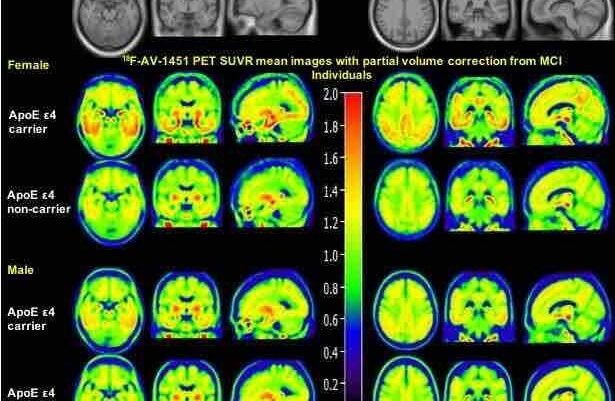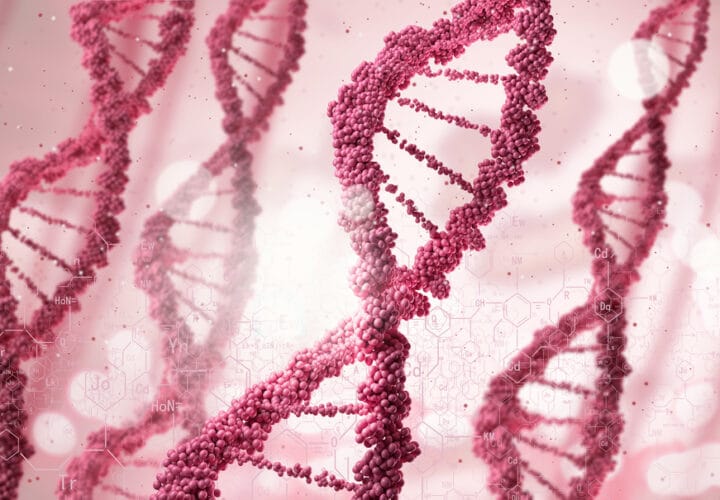Talk with an Alzheimer’s researcher and you’ll likely hear the same lament: Finding a treatment or cure is incredibly challenging because scientists are not even certain what exactly causes the neurological disease in the first place.
In fact, researchers speak of a “web of causation” that can lead to Alzheimer’s. In addition to genetics, scientists look to so-called lifestyle elements such as blood pressure and blood sugar levels. Even the bacteria that live in our mouths are being scrutinized for their potential role in Alzheimer’s.
One element that researchers are completely certain about is that people who carry the apolipoprotein E4 gene — known as APOE4 — are at a greater risk of developing Alzheimer’s.
Scientists have long associated APOE4 with amyloid plaques, one of the two types of protein misfires in the brain that lead to development of Alzheimer’s and other dementias. But the connection with the other type of proteins — called tau tangles — has been more tenuous.
The Role of APOE4
However, a new study published in JAMA Neurology has found that the link between APOE4 and dementia is even greater than originally believed.
“Alzheimer’s disease is defined by the aggregation of two proteins in the brain: amyloid plaques and tau tangles, both of which are known to be neurotoxic,” lead study author Joseph Therriault from McGill University’s Integrated Program in Neuroscience said in a news release.
“APOE4 has been associated with amyloid plaques, but its association with tau tangles has been controversial,” Therriault said. “In our study of nearly 500 individuals, we demonstrate this association in living humans.”
Therriault explained the study found that people with the APOE4 gene had greater levels of tau tangles in the memory centers of the brain, a finding that the research team contributes to “an evolving framework in which APOE4 plays a central role in Alzheimer’s disease because of its role in both amyloid plaques and tau tangles.”
The Complexity of Alzheimer’s Genetics
The findings about tau tangles and APOE4 come during a time of rapid increases in our knowledge about the genetic underpinnings of Alzheimer’s. And not all of the new information is consistent.
Just last week, scientists published the first study about Alzheimer’s disease in identical triplets, finding that the development of dementia is not exclusively linked to our genes.
That study found that despite sharing the same DNA, only two of the triplets developed Alzheimer’s in their late 70s. At the time of the study, all three of the 85-year-old siblings had high blood pressure but only two ended up developing dementia.
“These findings show that your genetic code doesn’t dictate whether you are guaranteed to develop Alzheimer’s,” said Dr. Morris Freedman, a senior author on the paper and a scientist at Baycrest’s Rotman Research Institute. The paper was published in Brain.
“There is hope for people who have a strong family history of dementia since there are other factors,” he said, “which could either protect against or accelerate dementia.” Other factors, Freedman said, could include environment or lifestyle.
Another recent study identified a rare gene mutation that appeared to prevent a Colombian woman from developing Alzheimer’s. Scientists said the research, published in the journal Nature Medicine, presents a tantalizing clue for why some people are resistant to developing Alzheimer’s.
Confused about the role of genetics in Alzheimer’s? The National Institute on Aging has a good background document. The Alzheimer’s Association also has a good explainer on the causes and risk factors on its website.






I am interested in what is known about the gram negative anaerobe p gingivalis and the neurotoxicity gingipains and how we can treat the gingipains.